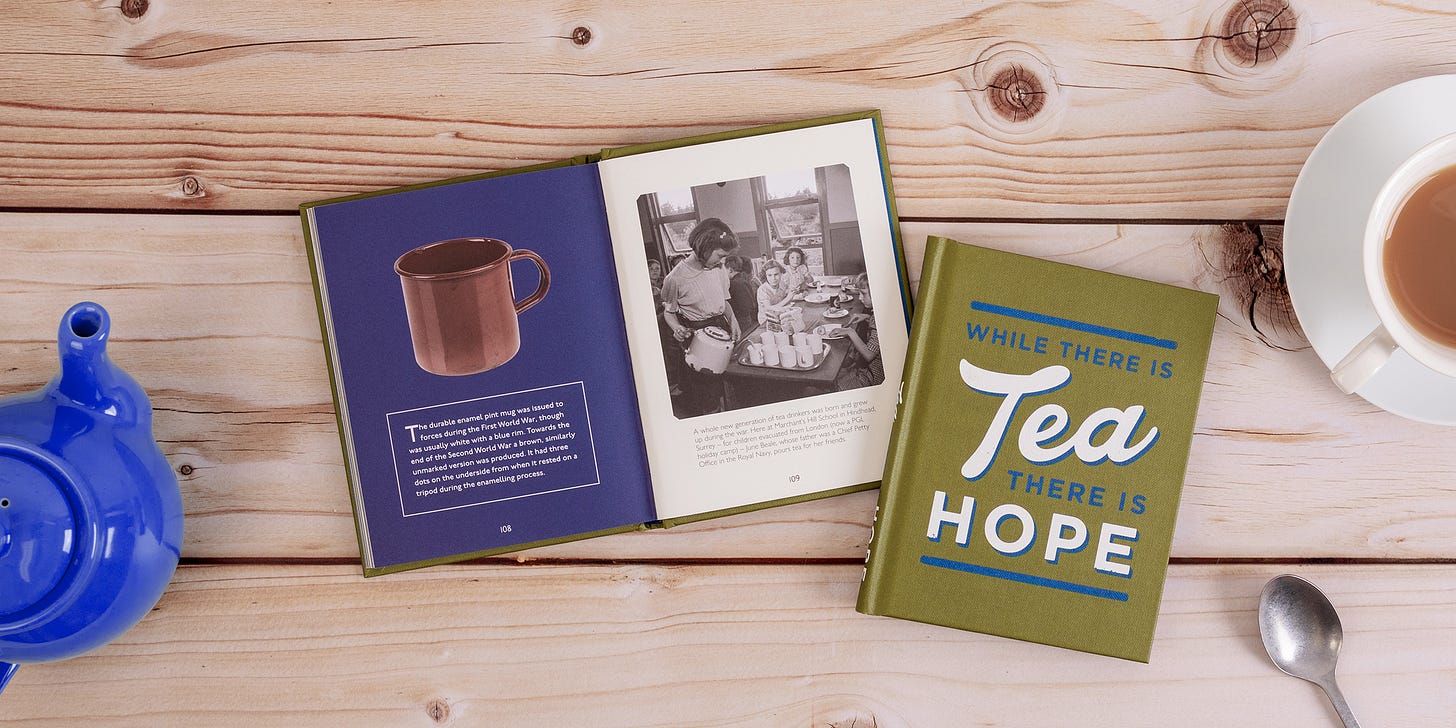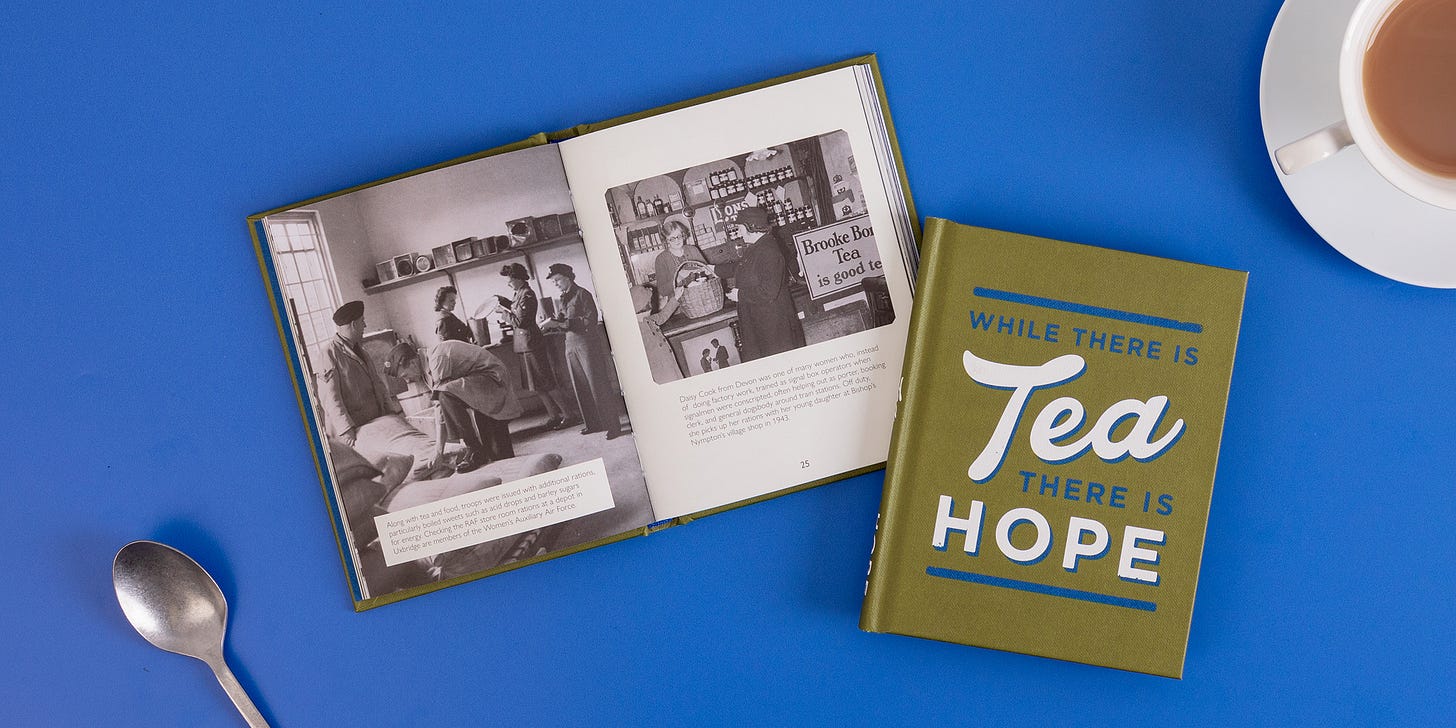While There Is Tea There Is Hope
It's a new dawn, it's a new day, it's a new book. And I'm feeling good.
A new book is always a cause for celebration. Here is Robert Louis Stevenson writing to his parents on May 5, 1883, about Treasure Island:
MY DEAREST PEOPLE, - I have had a great piece of news. There has been offered for TREASURE ISLAND - how much do you suppose? I believe it would be an excellent jest to keep the answer till my next letter. For two cents I would do so. Shall I? Anyway, I'll turn the page first. No - well - A hundred pounds, all alive, O! A hundred jingling, tingling, golden, minted quid. Is not this wonderful? Add that I have now finished, in draft, the fifteenth chapter of my novel, and have only five before me, and you will see what cause of gratitude I have.
I particularly like the “jingling, tingling, golden, minted quid” but the rest of the letter is equally marvellous. “The weather, to look at the per contra sheet,” he writes, “continues vomitable and Fanny is quite out of sorts. But, really, with such cause of gladness, I have not the heart to be dispirited by anything.” And he signs off “Your loving and ecstatic son”.
Anyway, enough about him, let’s talk about me.
While There Is Tea There Is Hope came out this week and has been a pleasure to put together, almost exclusively using material from the Imperial War Museum’s marvellous photographic archive. You can hear me talking about it on the Comfortably Hungry podcast with food historian Sam Bilton on VE Day (May 8) but in the meantime here is a snippet from the book’s Introduction:
On the morning of the Battle of Waterloo, June 18, 1815, the Duke of Wellington stopped at a cottage very close to the front line. It had been raining heavily and the men of the 95th Rifles were brewing tea to perk themselves up. The Duke was also offered a cup of hot, sweet tea, which he accepted before riding off for a date with destiny.
Tea provided something special to Britain’s armed forces who benefitted from its warmth and invigorating properties from days of the Napoleonic Wars onwards, during conflicts in the Crimea, the Boer War, and especially the First World War.
By the 1930s, Britain as a nation had been drinking tea for at least 300 years and it had become the country’s staple drink of choice for workers, soldiers, and aristocrats alike. Tea room numbers blossomed in the interwar years, and tea historian William Ukers wrote in his encyclopaedic 1935 book ‘All About Tea’: “If he is to be happy, the Briton must have his tea – and good tea – whenever he wants it.”
When Prime Minister Neville Chamberlain declared war on Germany on September 3, 1939, Britain was drinking about 10lb of tea per person a year in Britain, roughly five cups a day. In the words of novelist George Orwell, who joined the Home Guard in 1940, tea was simply “one of the mainstays of civilization in this country”.
But war threatened to ruin the daily cuppa(s) - when the SS Gairsoppa was sunk by a German U-Boat in February 1941, it was carrying 1,765 tons of tea, sufficient to keep two thirds of Britain’s caddies stocked for an entire week.
Nevertheless, throughout the war, tea drinking developed into a symbol of the British at their best, unruffled, unmoved, and unflappable, whether on the the home front or the front line. Side by side, people did their bit, drank tea, and just got on with the matter in hand. The archives of the Imperial War Museum are overflowing with photographs of the armed forces sipping tea all over the world with their comrades, and images of those back at home getting on fine together with their much reduced weekly ration.
There was barely an aspect of life that tea did not enrich. A cup of tea with friends reinforced community spirit, gave workers in factories, mines, and on farms a welcome break, and offered comfort to those who had lost their homes or loved ones in bombing raids.
The power of a cup of tea is as evident today as it was back then. The belief that tea brings people together has been reinforced by recent studies indicating that tea consumption rose significantly during the coronavirus pandemic. Whatever troubles life throws at us, we still love our tea.





Good luck with the new book. I raise a glass of PGtips to you!